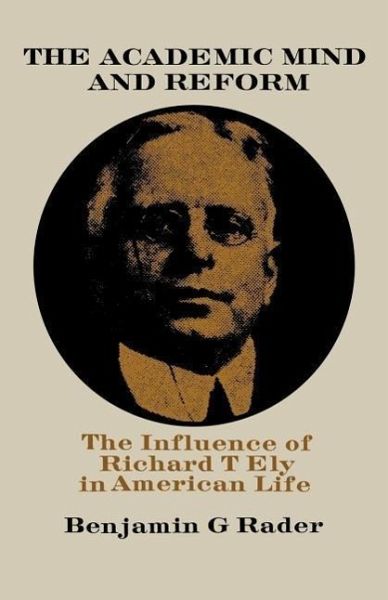
The Academic Mind and Reform
The Influence of Richard T. Ely in American Life
Versandkostenfrei!
Versandfertig in über 4 Wochen
25,99 €
inkl. MwSt.

PAYBACK Punkte
13 °P sammeln!
For over two generations economist Richard T. Ely popularized a wide spectrum of significant liberal social principles and mirrored many of the dilemmas, frustrations, and successes of the academician as a reformer. He was the originator of many ideas that agitated American reform circles in the late nineteenth and early twentieth centuries, and unlike most professors of his time, he frequently engaged in the public controversies that raged around the crucial social issues of the day. Through t












